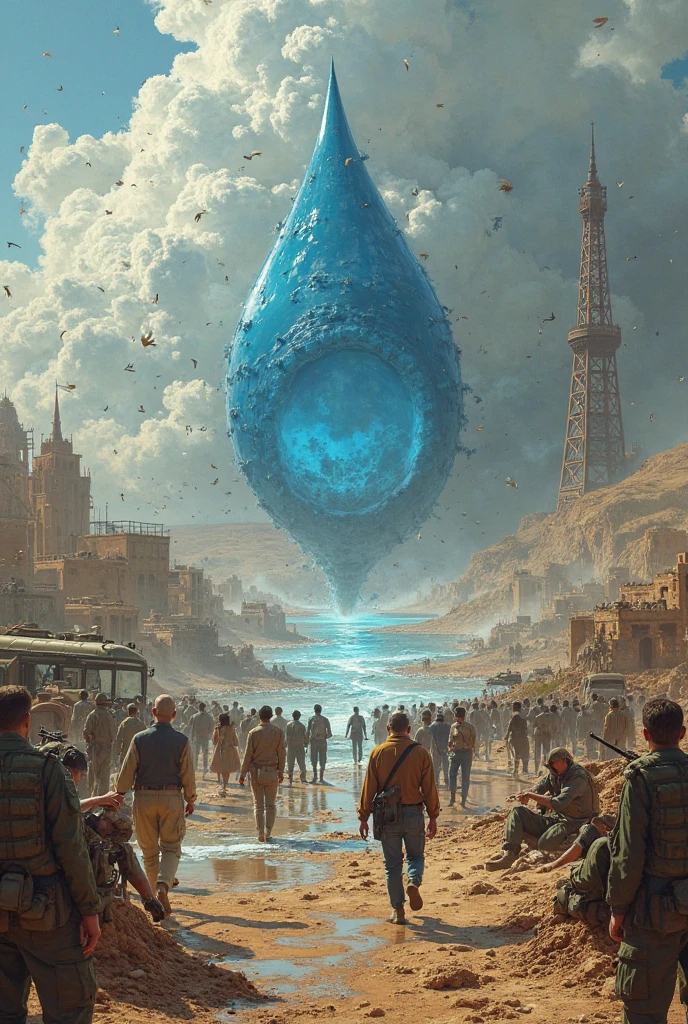The Coming War for Water: A Global Crisis Unfolding
Published: July 20, 2025 | Category: Global Affairs, Environment
Introduction
As climate change accelerates and population growth pressures our planet's resources, one essential element is quietly becoming the catalyst for global instability—water. Once seen as an infinite natural gift, fresh water is now emerging as a highly contested resource, and history warns us: water wars are not a myth. They are a reality we have faced, and may face again on an unprecedented scale.
Water Conflict: A Historical Perspective
Water has long been a source of conflict. The earliest recorded water war dates back to 2500 BC between the Sumerian city-states of Lagash and Umma over the Tigris-Euphrates river basin. In the 20th century, disputes escalated in the Middle East, where the Jordan River and Nile River became epicenters of regional tensions.
Notable conflicts include:
- The Six-Day War (1967): Water control was one of the factors behind Israel’s military campaigns in the Golan Heights and West Bank.
- The Indo-Pakistan Disputes: The Indus Waters Treaty of 1960 has helped maintain peace, but growing distrust between India and Pakistan raises questions about its durability.
- The Nile Basin Dispute: Egypt, Ethiopia, and Sudan have faced severe disagreements over Ethiopia's Grand Renaissance Dam (GERD).
The Water Crisis Today
Globally, 2.2 billion people lack access to safe drinking water. Climate change is exacerbating droughts in Sub-Saharan Africa, water tables are plunging in South Asia, and desertification threatens arable land across the Middle East. Even water-rich countries like the USA face shortages due to mismanagement and overconsumption.
Key regions facing water stress:
- Middle East & North Africa (MENA): The world’s driest region is already facing severe shortages.
- India: Groundwater depletion is alarming, particularly in Punjab and Haryana.
- China: Northern China suffers from chronic water scarcity affecting agriculture and industry.
Future Water Wars: A Looming Threat
Experts warn that future wars will be fought over water more than oil. As rivers dry up and aquifers become exhausted, transboundary disputes could ignite international conflicts.
Potential future flashpoints:
- India vs. China: The Brahmaputra River, which originates in Tibet, is a source of geopolitical tension.
- Israel vs. Palestine: Access to aquifers and Jordan River remains a contentious issue.
- Turkey vs. Iraq/Syria: Control of the Tigris and Euphrates rivers could inflame regional instability.
Technology and the Race for Water
Desalination plants, water recycling, AI-based irrigation, and satellite monitoring of water bodies are helping nations adapt. However, these are expensive and not accessible for developing nations facing the worst crises.
Can We Avoid Water Wars?
Yes, but only with global cooperation and sustainable management. International treaties, joint river commissions, and climate adaptation funding are essential. Equally important is reducing water wastage, regulating consumption, and increasing public awareness.
Conclusion
Water is life, but in the coming decades, it may become the reason for death and destruction. The world must recognize water not just as a utility, but as a geopolitical priority. Without action, the war for water may not be a question of "if," but "when."
💧 Keywords Summary:
Water scarcity, water wars, climate change, Nile conflict, India Pakistan water tension, Tigris Euphrates dispute, water security, global drought, future war prediction
source https://www.sufferingunseen.xyz/2025/07/the-coming-war-for-water-global-crisis.html
.jpg)

.jpg)
.jpg)


















